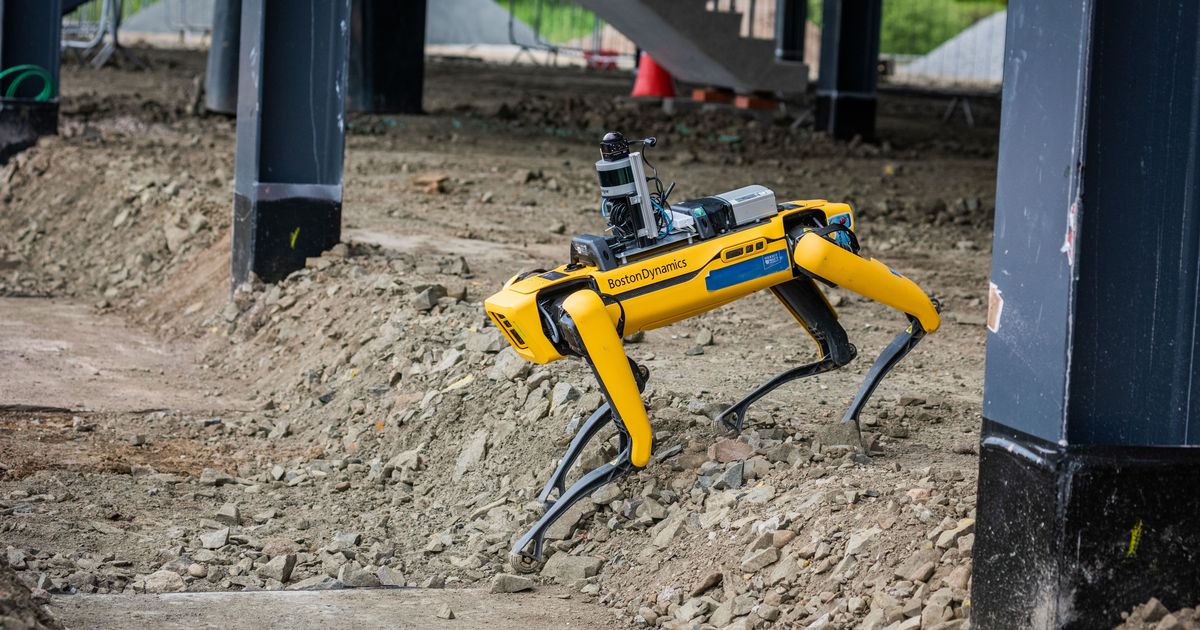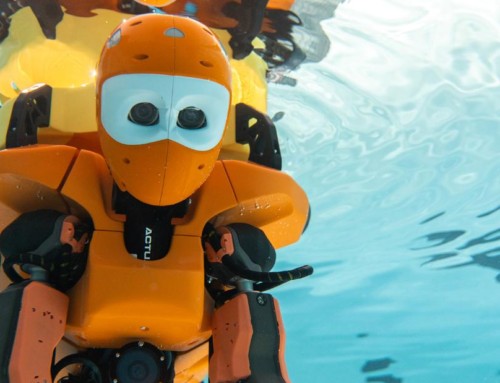[ad_1]
Using robots to make offshore inspections and repairs safer is moving a step closer, following the injection of £2.5m in a strategic project at the National Robotarium.
The boost for the ORCA Hub project, which was founded in 2017 and led by Heriot-Watt University and the University of Edinburgh, comes courtesy of the further funding from UK Research & Innovation.
Working with industry partners, the hub’s aim is to help the offshore energy industry to use robots to safely inspect, maintain and repair platforms, wind turbines and other infrastructure, guided by human specialists on ships or back on shore.
From the new funding, £600,000 will be used to help deliver six demonstration projects with industrial partners, including the inspection of wind turbine foundations and the deployment of Industrial Internet of Things (IIoT) sensors.
The remaining £1.9m will fund an extension of ORCA Hub’s activities to see if technologies and processes it has developed can be used in other sectors, ranging from construction and urban infrastructure through to decommissioning and waste management.
Yvan Petillot, professor of robotics and autonomous systems at Heriot-Watt University and co-academic lead of the National Robotarium, has been appointed as the ORCA Hub’s new director.
He takes over from Professor David Lane, founding director of the Edinburgh Centre for Robotics, who will continue to support the Hub as an advisor to its independent steering committee.
Petillot said: “Robots have the potential to carry out inspection and maintenance in hazardous environments, reducing the risks of putting divers into the water in harsh conditions or workers operating at height on wind turbines.
“Finding ways to combine the flexibility of autonomous robots with remote human operators has been one of the key strands in my career over the past 20 years.
“The international offshore energy industry is undergoing a revolution, adopting aggressive net zero objectives, and shifting rapidly towards large scale offshore wind energy production.
“The long-term industry vision is for a digitised offshore energy field, operated, inspected and maintained from the shore using robots, digital architectures and cloud-based processes to realise this vision.
“However, the recent pandemic has highlighted a widespread need for remote operations in many other industrial sectors.”
He said that the funding extension aims to accelerate the translation of the research into the existing industry network, which includes working with Wood, EDF and Ross Robotics.
During its first project for the ORCA Hub, the Spot robot will be deployed on construction sites, collecting data and measurements in real time.
This will allow multiple parties, regardless of location, to access and review the data, building greater understanding of the construction process and allowing them to identify new efficiencies, potential hazards and quality control measures.
UK Government Minister for Scotland Iain Stewart said: “Advancements in robotics will be essential to meeting the UK’s ambitious climate targets.
“Robots can help us to reduce waste, safely manage new infrastructure such as solar energy and offshore wind, and better monitor and protect our environment.
“The UK Government is building back better from the pandemic, supporting cutting-edge research across the entire UK and investing £21m in the National Robotarium as part of the Edinburgh and South East Scotland City Region Deal.”
Don’t miss the latest headlines with our twice-daily newsletter – sign up here for free.
[ad_2]
Source link






Leave A Comment
You must be logged in to post a comment.